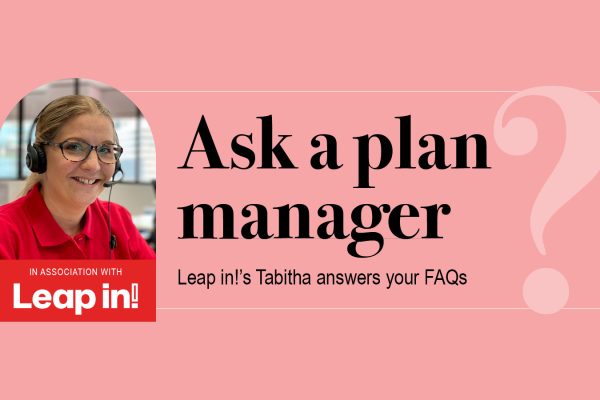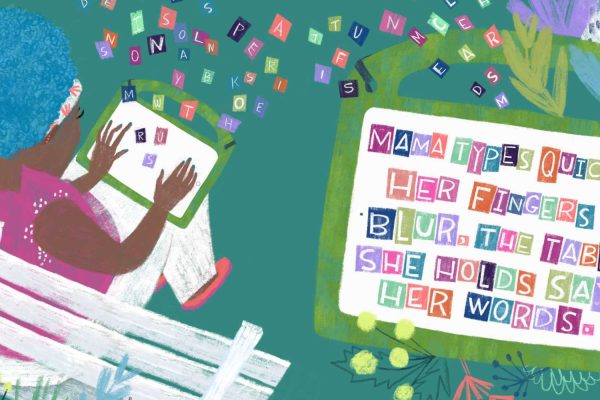
Transitioning from school & finding work: how the NDIS can help
Whether the goal for your child is open or supported employment there is a framework of supports that you can access through their NDIS plan.
The following information is provided by provided by Everyone Can Work – a website for people with intellectual disability, their families and supporters that brings together information about Australian Government employment supports, the lived experience of families and people with intellectual disability, and current research about employment for people with intellectual disability in Australia.
TRANSITION FROM SCHOOL
NDIS participants who are 15 years and over can apply for employment support to be added to their plan. This means students with disability can get NDIS employment support when they are in Year 10. This doesn’t replace transition planning and the transition activities that schools provide, like work experience in Year 10 and support from a career’s counsellor. By working together with your school, you can use NDIS supports to add to what they offer.
NDIS can also provide School Leavers Employment Supports (SLES). SLES funding helps young people develop skills and experiences and connects them with supports to help them get a job. SLES is a lump sum of funding. You can use it flexibly as and when you need it.
HOW TO ASK FOR NDIS EMPLOYMENT SUPPORT
You ask for employment support funding in your NDIS plan the same way you ask for other kinds of NDIS support. This means organising and preparing for an NDIS planning meeting so your young person
can add their employment goals. Timing is important so that the funds are available when they are needed. If it is a long time until your next meeting, ask your Local Area Coordinator (LAC) or Planner to apply for an unscheduled plan review. You may need to provide evidence that your circumstances have changed.
Your young person will need goals that relate to employment so that the right supports can be included in their NDIS plan. A long-term goal could be to have a job in open employment. A short-term goal would be about the next steps they need to take towards getting a job.
This will change over time. Keep it fairly broad so that it’s relevant until the next year’s plan.
It’s important to think about what your young person wants and write down goals to take to the planning meeting. If you use a planning workbook, take this to
the meeting too. Also bring along other information like school reports.
The good thing about using the NDIS for employment, is that the supports in your young person’s plan are designed specifically for them. With your support, your young person decides what their employment goals are and how they use the supports in their plan. This includes choosing who provides their supports and what they help them with.
You can find out more about getting ready for work in the ‘Let’s talk about work’ booklet on the NDIS website.
Ways to use NDIS employment supports funding
Two of the main ways funding is provided for employment within the NDIS is under the ‘Finding and Keeping a Job’ Capacity Building category and School Leaver Employment Supports. While the funding can be used for similar things, “Finding and Keeping a Job” is more broadly focused on helping individuals with disabilities secure and maintain employment once they have left school.
“School Leaver Employment Supports” (SLES) concentrates on supporting the transition from school to either employment or further education, recognising the unique challenges faced during this critical period of transition. The funding for School Leaver Employment Supports is generally provided for a duration of up to two years for senior school students and recent school leavers. This support is often available for individuals up to the age of 22, but the age limit can vary.
To help you think about some goals your young person may want to include in their plan to request these supports, here are some creative ways that funding could be used:
Work readiness programs
These programs and workshops aim to enhance the overall employability of individuals with disabilities, preparing them to navigate the job market successfully and contribute meaningfully to the workforce. The content is often tailored to address the specific challenges and opportunities that individuals with disabilities may encounter in their pursuit of meaningful and sustainable employment.
The content of these sessions may include: job search skills, interview preparation, time management, understanding workplace culture, teamwork and collaboration, professional communication, self-advocacy and more.
You could also use the above skills as the basis of goals for one-on-one OT or psychology sessions if there is a specific area of development or support that your young person needs to focus on.
CV writing workshops
Think about accessing courses or programs designed to educate individuals on the art and science of creating effective resumes helping them to present their skills and experiences in a compelling manner.
Job coaching and mentoring
Allocate funds for a dedicated job coach or mentor who can provide ongoing support, guidance, and advocacy for the individual in the workplace. This could include regular check-ins, assistance in navigating workplace dynamics, and helping to set and achieve career goals. You could strike gold and find a support worker who could help you in this area!
Skill enhancement
Think about skills that may need developing that align with the specific requirements of a chosen career path. This might include technical skills, soft skills, or industry-specific training to ensure a well-rounded skill set.
While the NDIS does not fund further education or vocational training courses such as TAFE, there may be skills and development areas that are appropriate to be addressed with allied health specialists such as speechies, OTs, and other disability specific service providers.
Entrepreneurial ventures
Support the exploration and development of entrepreneurial ventures by requesting funds to help you with aspects like understanding legal issues, developing a business plan, learning the steps to make your product or deliver a service, learning behaviours that are critical to your business, organising the systems you need (eg money management, stock management).
Adaptive tools & tech
Request adaptive technology and tools that cater to your person’s specific needs. This may involve acquiring assistive devices, software, or ergonomic solutions to enhance accessibility and productivity in the workplace.
For more information and resources on employment pathways people with intellectual disability visit: everyonecanwork.org.au







